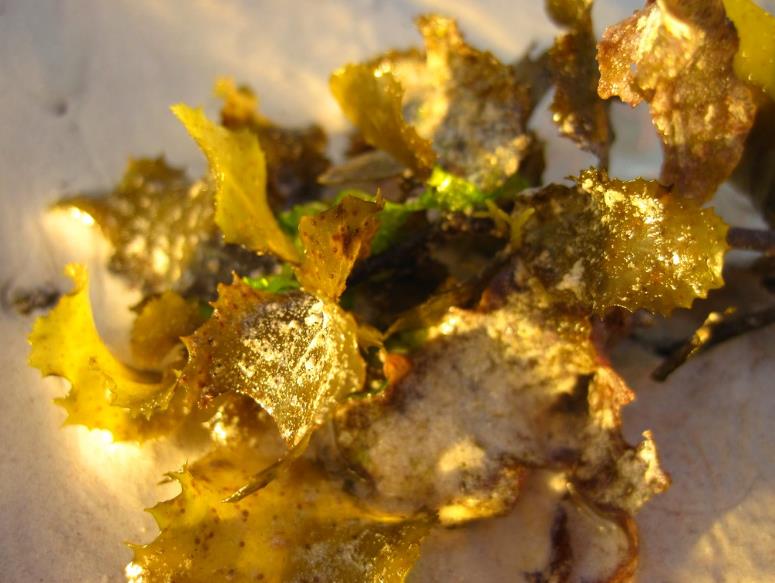A recent study has found that brown seaweed consumption can help regulate blood glucose levels and reduce the risk of type 2 diabetes. The study, published in the journal Nutrients, analyzed the results of 23 randomized controlled trials involving healthy, at-risk, and diabetic individuals who consumed different types of brown seaweed or their extracts.
Brown seaweed is a type of marine algae that contains various bioactive compounds, such as polyphenols, fucoidan, alginates, and iodine. These compounds have been shown to have multiple health benefits, including anti-inflammatory, antioxidant, anti-obesity, and anti-diabetic effects.

One of the main mechanisms by which brown seaweed can lower blood glucose levels is by inhibiting the activity of digestive enzymes, such as alpha-amylase and alpha-glucosidase, that break down carbohydrates into glucose. By slowing down the absorption of glucose into the bloodstream, brown seaweed can prevent postprandial hyperglycemia, which is a spike in blood sugar levels after a meal.
Another mechanism is by stimulating the secretion of insulin and incretin hormones, such as glucagon-like peptide-1 (GLP-1) and glucose-dependent insulinotropic peptide (GIP), that regulate glucose metabolism. Insulin is a hormone that helps cells take up glucose from the blood, while incretin hormones enhance insulin secretion and suppress glucagon secretion, which is a hormone that raises blood glucose levels.
Additionally, brown seaweed can modulate the expression and activity of various genes and proteins involved in glucose transport, oxidation, and storage, such as glucose transporter 4 (GLUT4), peroxisome proliferator-activated receptor gamma (PPAR-gamma), and glycogen synthase kinase 3 beta (GSK3-beta). These factors can improve insulin sensitivity and glucose utilization in the liver, muscle, and fat tissues.
What are the benefits of brown seaweed consumption for blood glucose management?
The study conducted a meta-analysis of the data from the 23 trials and found that brown seaweed consumption had a significant effect on lowering fasting and postprandial blood glucose levels, as well as glycated hemoglobin (HbA1c) and homeostatic model assessment of insulin resistance (HOMA-IR) levels, compared to the control groups. These indicators reflect the average blood glucose levels and insulin resistance over a period of time, and are commonly used to diagnose and monitor diabetes.
The study also found that the effects of brown seaweed consumption were more pronounced in the postprandial state, which suggests that brown seaweed can be beneficial for preventing or reducing postprandial hyperglycemia, which is a major risk factor for diabetes and its complications.
Furthermore, the study revealed that the dose and type of brown seaweed consumed influenced the outcomes. A high dose (1000 mg or more) of brown seaweed was more effective than a low dose, and certain species of brown seaweed, such as Laminaria digitata, Undaria pinnatifida, Acophyllum nodosum, and Fucus vesiculosus, were more effective at improving blood glucose levels than others.
What are the implications and limitations of the study?
The study concluded that brown seaweed consumption can be a promising strategy for blood glucose management and diabetes prevention, as it can improve glucose homeostasis and insulin sensitivity through various mechanisms. The study also suggested that brown seaweed can be incorporated into the diet as a functional food or a dietary supplement, as it is rich in other nutrients and antioxidants that can benefit overall health.
However, the study also acknowledged some limitations and challenges in the research on brown seaweed and blood glucose. The quality and quantity of the evidence were limited by the heterogeneity and inconsistency of the study designs, methods, interventions, and outcomes. The optimal dose, duration, frequency, and form of brown seaweed consumption for blood glucose control were not clearly established. The safety and tolerability of brown seaweed consumption, especially at high doses, were not adequately assessed. The mechanisms and pathways by which brown seaweed affects blood glucose were not fully elucidated. The potential interactions and synergies between brown seaweed and other dietary or pharmacological agents were not explored.
Therefore, the study recommended that more high-quality and standardized randomized controlled trials are needed to confirm and expand the findings, and to address the gaps and challenges in the field. The study also encouraged more mechanistic and molecular studies to unravel the complex and multifaceted effects of brown seaweed on blood glucose regulation.
